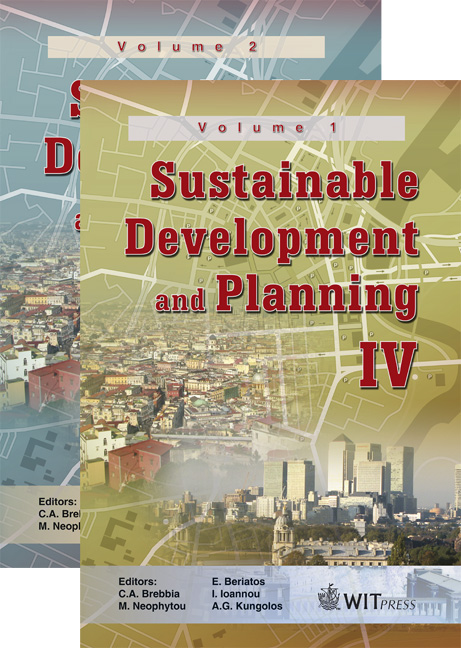Managing The Climate Change Impact On The Slovenian Coast
Price
Free (open access)
Transaction
Volume
120
Pages
8
Page Range
799 - 806
Published
2009
Size
299 kb
Paper DOI
10.2495/SDP090742
Copyright
WIT Press
Author(s)
I. Jurinčič, D. Ogrin, T. Brezovec & Z. Kribel
Abstract
Attitudes toward the natural environment and its uses are becoming an important issue of global concern. Climate change and associated natural disasters demand different practices in the use of natural and environmental goods in a more longterm sustainable way, reducing the damage of different economic activities. Among such activities are also those of leisure and tourism where the focus should be on sustainable tourism development in balance with economic interests and ecological requirements. This paper presents some results of recent research on historical tourism and meteorology data for the coastal region of Slovenia. A regression analysis shows that tourist arrivals to the Slovenian coast depend on seasonal temperatures and rainfall quantity. However, further in-depth research is necessary to explain the degree of direct influence of climate change to tourism on the Slovene coast. Keywords: coastal region, tourism demand, weather factors, regression analysis, Slovenia. 1 Introduction Climate change and associated natural disasters demand different practices in the use of natural and environmental goods in a more long-term sustainable way, reducing the damage of different economic and human activities [1–4]. The group of experts for climate change at the United Nations [5] argue that global climatic changes will have a significant effect on the tourism industry. Since the impact of climate change on tourism differs by regions, each region should
Keywords
coastal region, tourism demand, weather factors, regression analysis, Slovenia.





